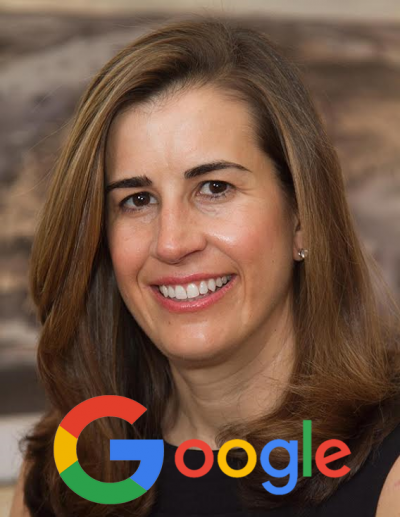By Linnea Uyeno ’20

Every question is one Google search away from being solved. Tina Daniels ’93 found the answer to her career search not on Google, but at the Google Corporation. She serves as an advisory board member for the Kravis Leadership Institute and as Google’s Director of Agency Business Development. KLI had the opportunity to talk with Daniels about her own personal career tips.
What do you do at Google?
Google makes most of its money selling advertising solutions. We have teams of people that sell ads directly to clients and teams that work directly with agencies. Media for large marketers is primarily bought through advertising agencies. I manage a lead that manages the agency channel.
What mistakes do CMC students make when it comes to finding a career?
CMC students are smart. A student who loves writing could probably make a great investment banker or doctor, if they put their mind to it. [CMC students] frequently make choices about their careers’ based upon what they think that they should do. In my era many CMC grads felt compelled to pursue careers in accounting, banking, or consulting. The problem is that smart [CMC students] are good at a lot of things, and they need to be careful at what they become expert at. I think that sometimes people make the mistake of taking a job that they sort of enjoy.
What did you go into after graduation?
In my case, I went into public accounting after CMC, and I wasn’t particularly good at it. Then I went into investment banking. I was a better banker, but not passionate enough to work 90 hours a week at it forever. I opted to go to business school at Harvard and after graduation transitioned into digital marketing.
How did CMC prepare you?
CMC helped me to write and to think critically. I believe that learning how to synthesize information and communicate ideas is an important skill to develop. We can’t predict what is going to happen in the world, but I guarantee that an ability to think critically will always be valued.
What does Google look for?
Of course at Google we look for people who are smart. But we also look for people who have excelled at whatever they have done. A collaborative approach is important as Google is a matrixed organization and you need to be able to work with people in different business groups. Qualities of proactive cooperation and friendliness are paramount to our corporate culture.
Agility and general analytical capabilities are as important as specific role related knowledge. Google is a company that is constantly evolving and because the job you are hired for is likely to change, cognitive flexibility is essential.
What tips do you have about finding a career you love?
Industries are changing all the time. Your perfect career in 5 years may not even exist now. What is important is to be do work where you in flow— that your skill set is being put to highest and best use and you are making an impact. Know what about your work generates energy versus what saps energy. I think that later in your career [it’s important to] optimize three things: satisfaction, income, and time. When you are in a career you really love, you worry less about the time you are spending on it. Hopefully, if you love your career you are also good at it. And typically, if you good at something, you tend to make more money doing it.
Any other last career tips for students?
It’s important to build up a network early on in your career and to keep that network thriving. I like it when students take first jobs where they have opportunities to meet lots of people. The more people you know, the easier it is to get the next job. The friends you make early in your career may come back later on in ways you can’t expect.
It’s also helpful to have a personal board of advisors. I have a personal advisory board made up of five women whom I consult with regularly. We work in the same industry and meet to catch up and talk about our careers. We have been doing this for nearly 10 years, and during that time I have worked directly for two of those women.

